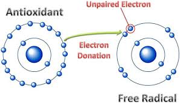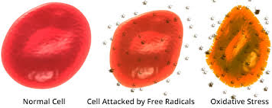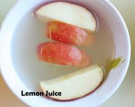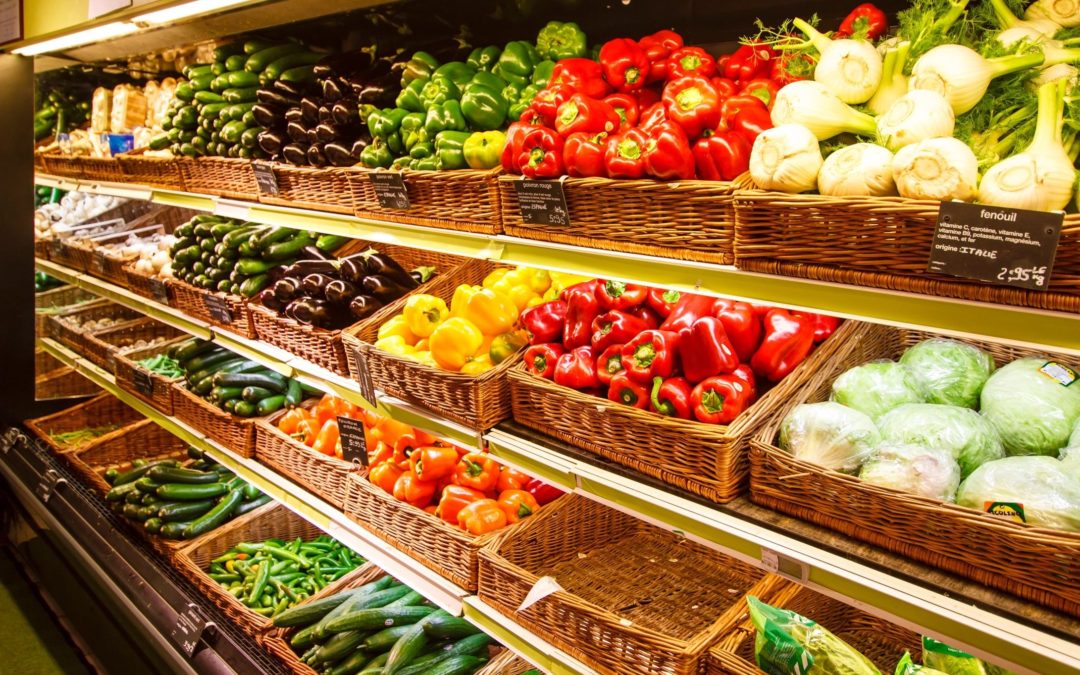Do you know what an antioxidant is? I will tell you really soon, but first lets start with some background information on why antioxidants are important to your health.
Every day our bodies are subjected to oxidative stress (the generation of “free radicals” – yes, I’ll explain that too) and damage, no matter who we are or what we do. Sources of damage include environmental pollution, radiation, UV light, smoking, drinking alcohol, exercising and believe it or not, even normal processes of our cells when they are converting the foods we eat into energy.

All this damage generates free radicals. What is a free radical? It’s an unpaired electron, which is not a good thing. This unpaired electron (from an atom or molecule) does not want to be unpaired, so it takes a partner from another atom or molecule. The “attack” process is called oxidation. Just for a frame of reference, this occurs when a cut-up apple turns brown, when butter becomes rancid or when rust develops on metal.
Earlier I said that all of us are subjected to this stress or oxidative damage. The human body takes a lot of hits each day resulting in a lot of oxidative damage. A lot of times this oxidative damage gets repaired. *Secret Health Tip: Here’s where the role of insurance may come into play if we consume a healthy diet and eating pattern. **Caveat: Not all the damage gets repaired, especially if your diet and lifestyle patterns tip the scales unfavorably. The result is accumulated damage, which can negatively impact our health.There’s plenty of evidence that links dietary antioxidants to decreased risks of disease, like cancer, heart disease and type 2 diabetes.

There’s plenty of evidence that links dietary antioxidants to decreased risks of disease, like cancer, heart disease and type 2 diabetes.
An antioxidant is any substance that delays or inhibits oxidative damage to target molecules. For example, if you put lemon juice on a cut-up apple, it will delay the oxidative damage. Essentially, antioxidants protect our cells from free radical damage. Think of the free radicals as the “bad guys” who disrupt cell function and antioxidants as the “good guys” that try to preserve cell function.

Well-Known Antioxidants:
- Vitamin A
- Vitamin C
- Vitamin E
- Selenium
- Lycopene
Where Can We Find Antioxidants?
- Fruits
- Vegetables
- Beans/Legumes
- Whole Grains
- Nuts/Seeds
 I equate consuming foods with antioxidants to purchasing insurance. The more protection we arm our body with, the better our chances of stabilizing free radicals before they cause us harm.
I equate consuming foods with antioxidants to purchasing insurance. The more protection we arm our body with, the better our chances of stabilizing free radicals before they cause us harm.
Question: Is a phytochemical the same thing as an antioxidant? Answer to that in part 2 of this blog, next week! Promise it’s worth the wait!
Wendy Kaplan, MS, RDN, CSO, CDCES, CDN is a registered nutritionist specializing in oncology and weight management in Long Island and in the New York City area. Connect with Wendy on Facebook, Instagram and Twitter and read more of her blog posts and download recipes at Food4HealthRD.comof her blog posts and download recipes at Food4HealthRD.com


0 Comments